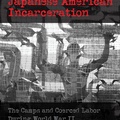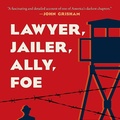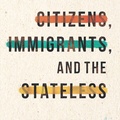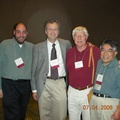Although primarily a prolific author of children’s books, mostly fictional, Unforgotten Voices from Heart Mountain by Joanne Oppenheim (with Nancy Matsumoto) is her third non-fictional work treating assorted dimensions of the Japanese American World War II incarceration experience. The first of these was Dear Miss Breed: True Stories of the Japanese-American Incarceration during World War II and a Librarian Who Made a Difference (2006); the second was Stanley Hayami, Nisei Son: His Diary, Letters, and Story from an American Concentration Camp to Battlefield, 1942-1945 (which led to a correlated 2012 documentary film also set chiefly in Heart Mountain concentration camp, A Flicker in Eternity, done in collaboration with Ann Kaneko and Sharon Yamato).
Like these two books and the film, the volume under review here is reader-friendly and will simultaneously appeal in equal measure to a mixed audience of adults and youths, and constitute a substantial contribution to public comprehension of the unjust World War II social disaster suffered by Americans of Japanese ancestry.
While I have been closely connected to the Heart Mountain site as both a participant and a presenter at its annual pilgrimages and have read virtually everything published in relation to this one-time concentration camp, I was nonetheless charmed by the unfolding story format of Unforgotten Voices from Heart Mountain and captivated not only by encountering new information in it but also by revisiting familiar data rendered in a novel fashion predominantly via letters, diaries, and oral history interviews.
In respect to the latter genre, I was greatly impressed, though certainly not altogether surprised, to discover the astounding number of conversational narratives that Oppenheim has transacted and taped, mostly early in the current century, with knowledgeable informants of diverse backgrounds and perspectives. Since there is no indication of this material having been deposited in a public archive so that researchers can capitalize upon their rich contents, it is my fond hope that this remedial action is taken in the near future.
Oppenheim deserves commendation for making the fortuitous decision to involve Matsumoto, whose Issei grandparents and Nisei parents were incarceration camp survivors, as a co-author for Unforgotten Voices from Heart Mountain. Because her family was largely silent about the traumatic consequences of their and the Japanese American community’s collective wartime imprisonment, she, like many other Sansei, dedicated herself to finding out the facts giving rise to their trauma and thereafter passing her knowledge along to future Nikkei generations so as to lessen the intergenerational distress that they were fated to inherit as a familial legacy. Her multiple entries in the book she co-authored with Oppenheim represent a formidable testimony to her commitment in this respect.
Because of my career-long dedication to the Nikkei resistance to their World War II oppression by the U.S. government in conjunction with the leadership of the Japanese American Citizens League, the portion of Oppenheim and Matsumoto’s remarkable youth-accented treatise that most resonates with me is that bearing on the 1944 draft resistance movement headed up by the Heart Mountain Fair Play Committee and enacted by 85 young Nisei men—the largest number percentage-wise among the 10 War Relocation Authority detention camps—who were tried in federal court, found guilty, and sentenced to three-year prison terms. To give voice to this cadre of resisters, the co-authors offer the testimonials of an outspoken quartet of them: Jack Tono, Takashi “Tak” Hoshizaki, Mitsuru “Mits” Koshiyama, and Yoshito “Yosh” Kuromiya.
In fairness to those Heart Mountain men who availed themselves of accepting the draft and serving in the segregated and well-decorated 442nd Regimental Combat Team military unit, Oppenheim and Matsumoto also highlight the combat lives (and tragic deaths) of two of the most celebrated and charismatic graduates of Heart Mountain High School, student body president Ted Fujioka and diarist-artist Stanley Hayami, who allegedly, after meeting with a relative who was a Fair Play Committee leader, declared, “I kind of agree with them [the FPC] but there are two sides to this [situation] and I have decided to go [into the army].”
This balanced treatment by the co-authors is characteristic of the entire book, which rightly deserves a broad general readership as well as adoption in the curriculum of America’s secondary schools.
UNFORGOTTEN VOICES FROM HEART MOUNTAIN
By Joanne Oppenheim & Nancy Matsumoto
(New York: Oppenheim Toy Portfolio, Inc., 2023, 221 pp. $24.95, paperback)
*This article was originally published in the Nichi Bei News on January 1, 2024.
© 2024 Arthur A. Hansen / Nichi Bei News







